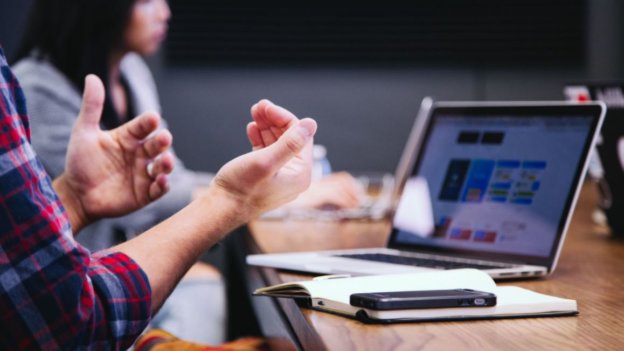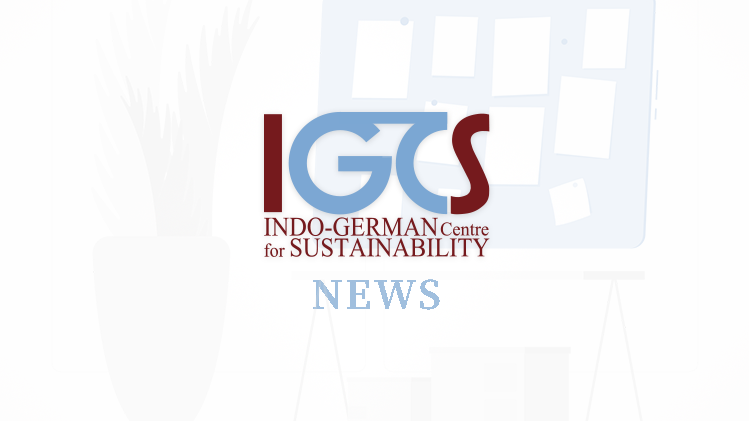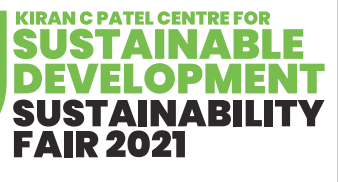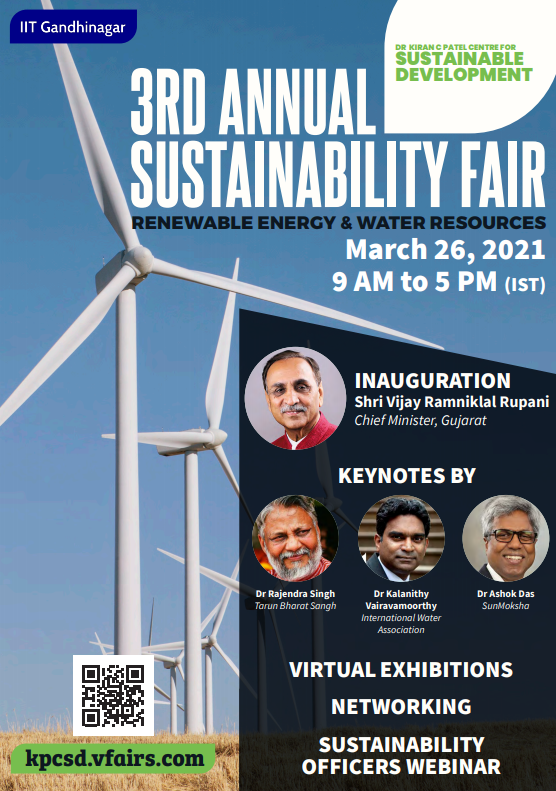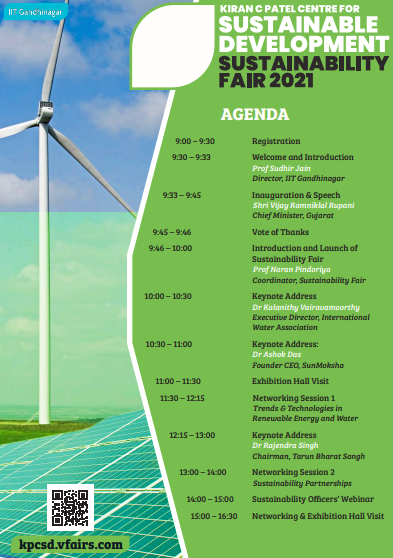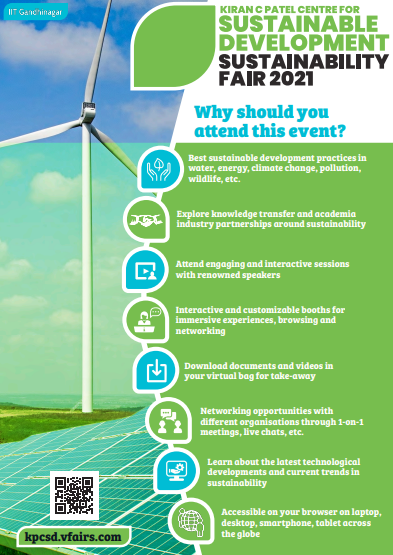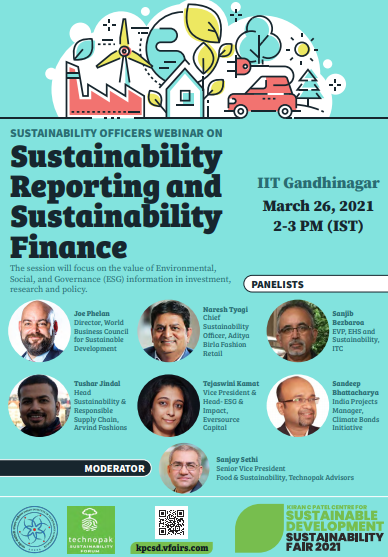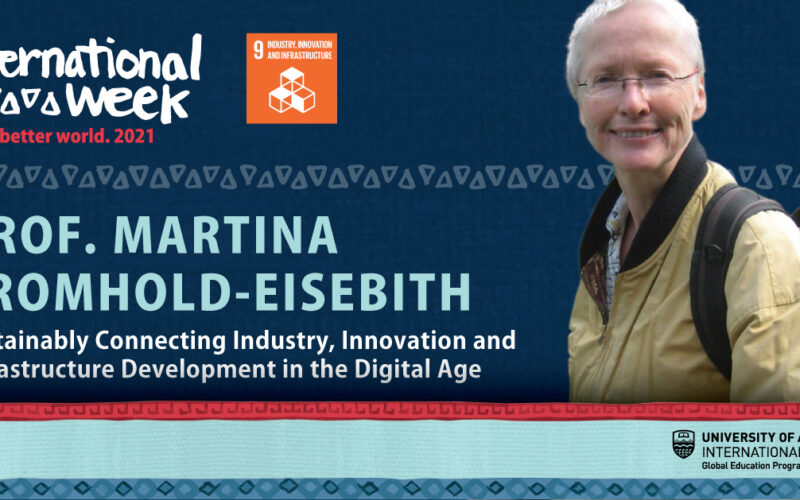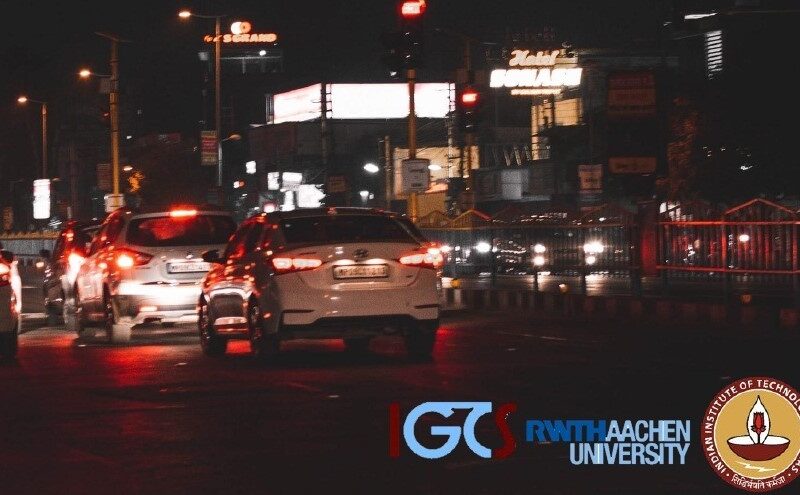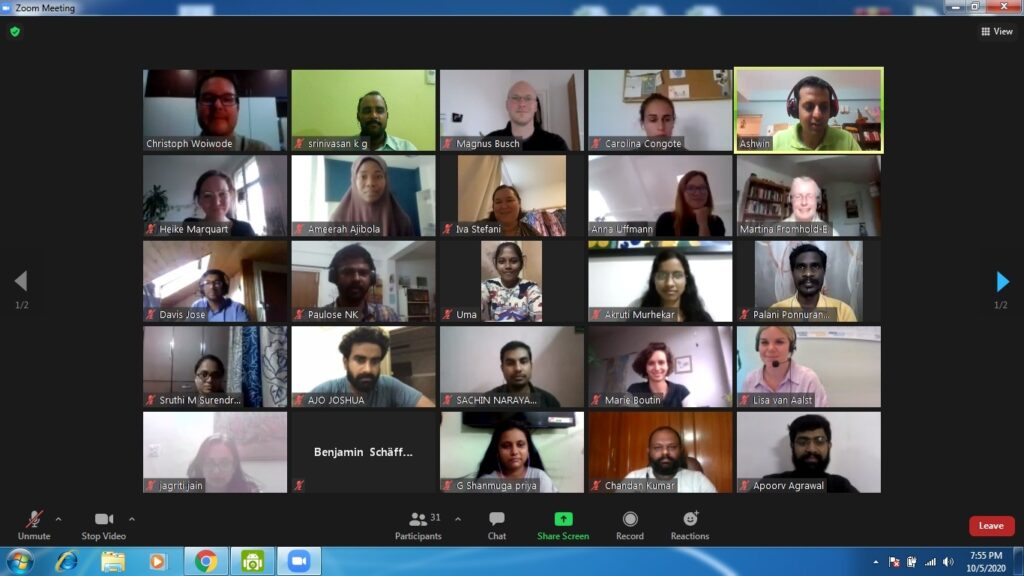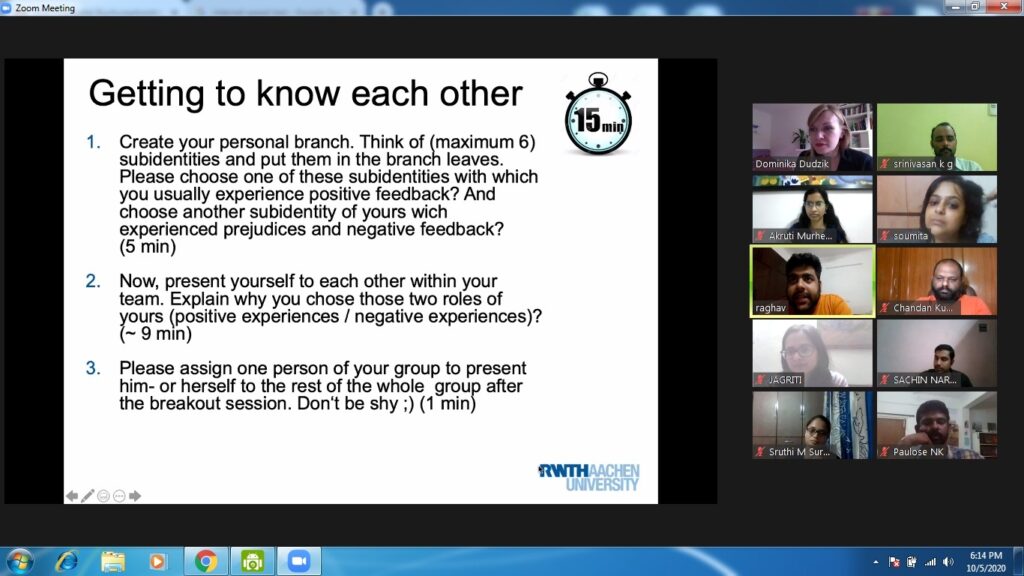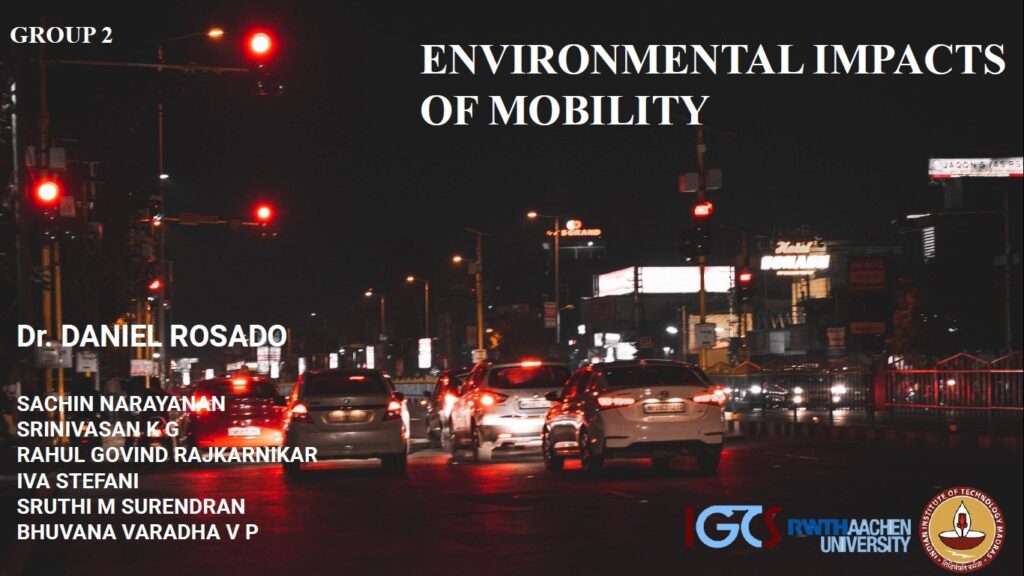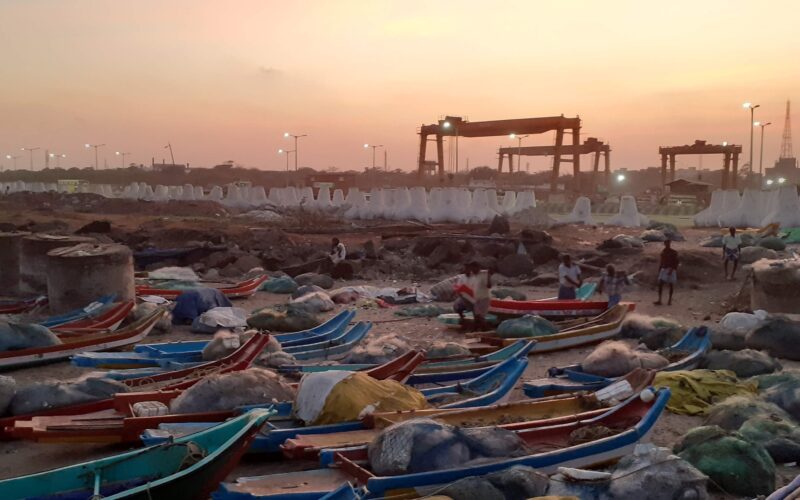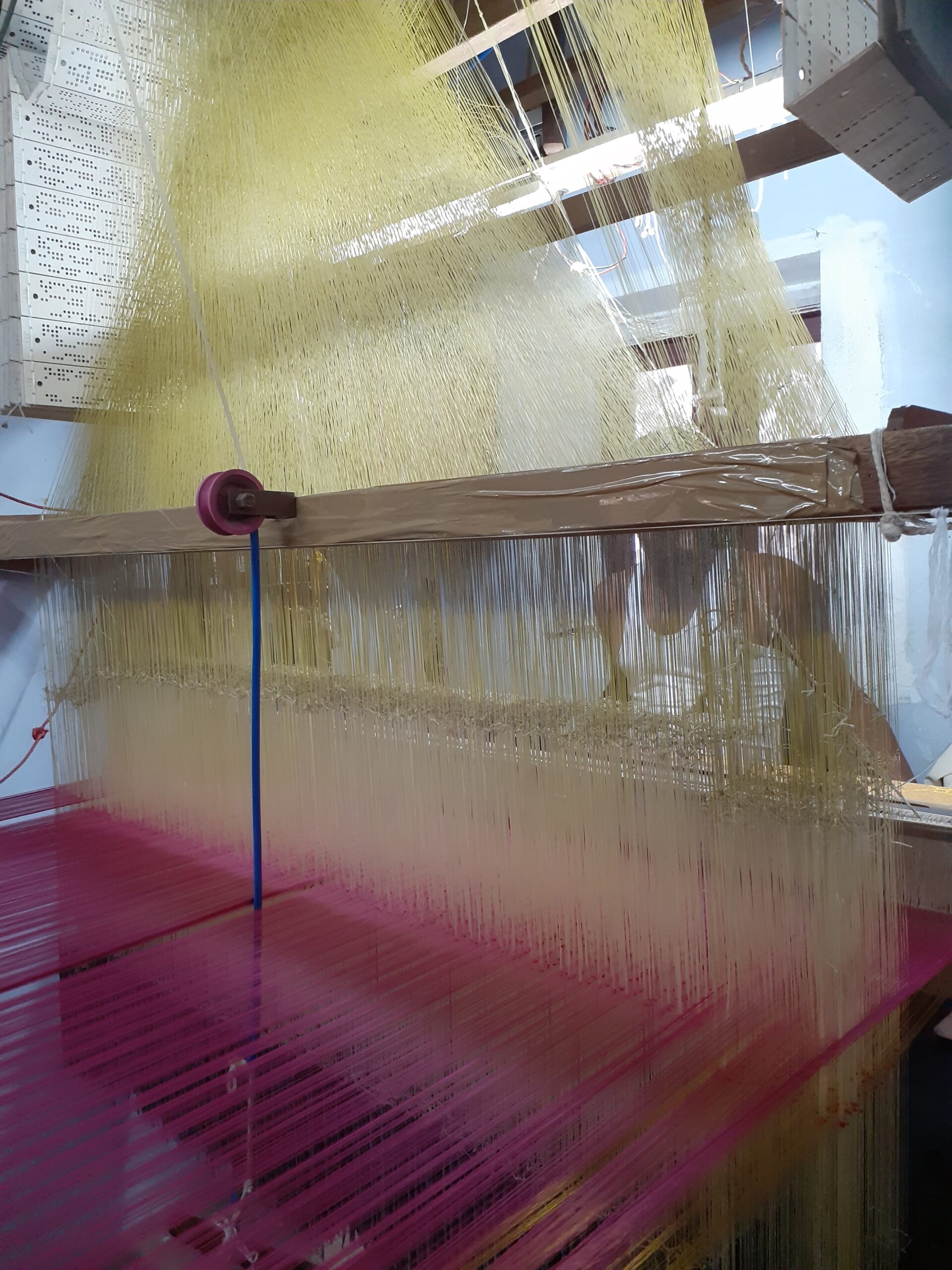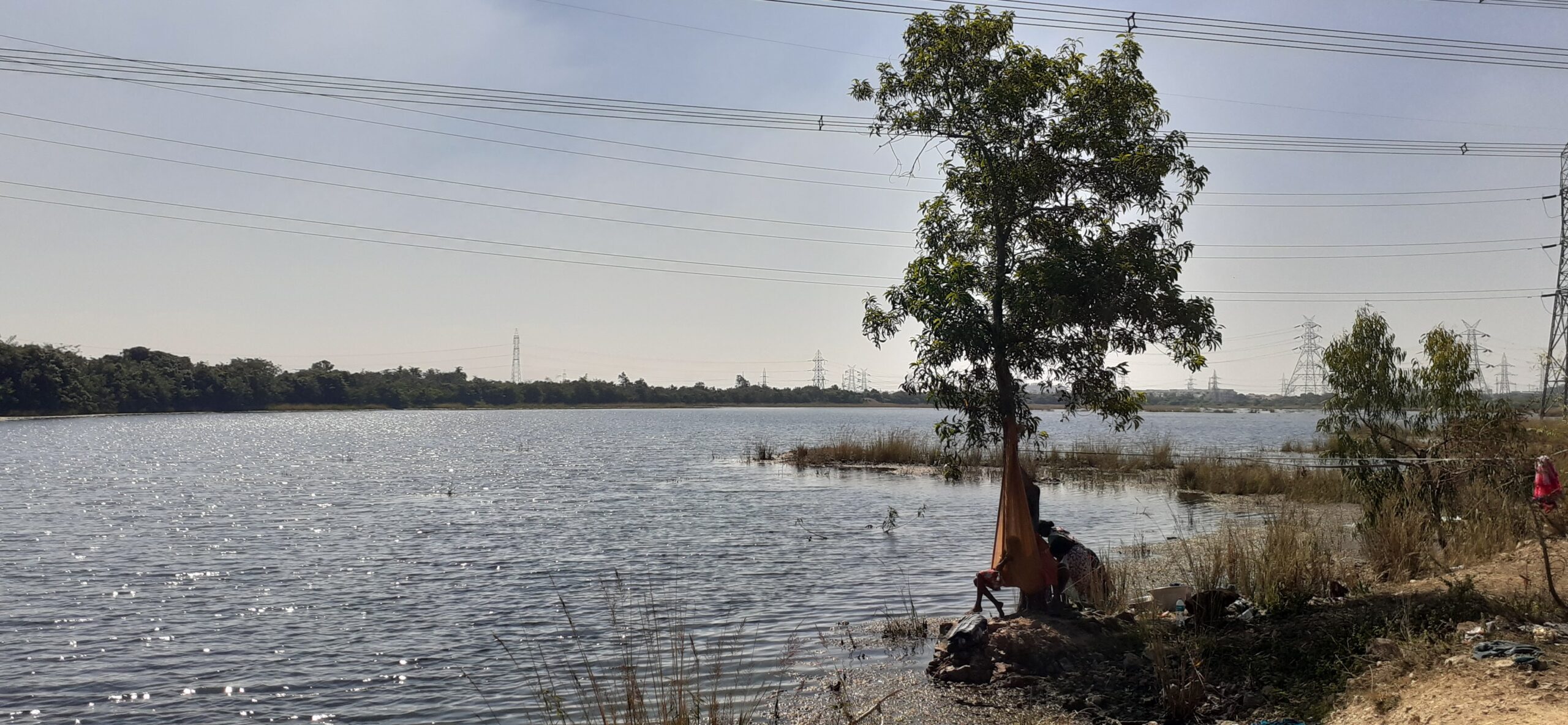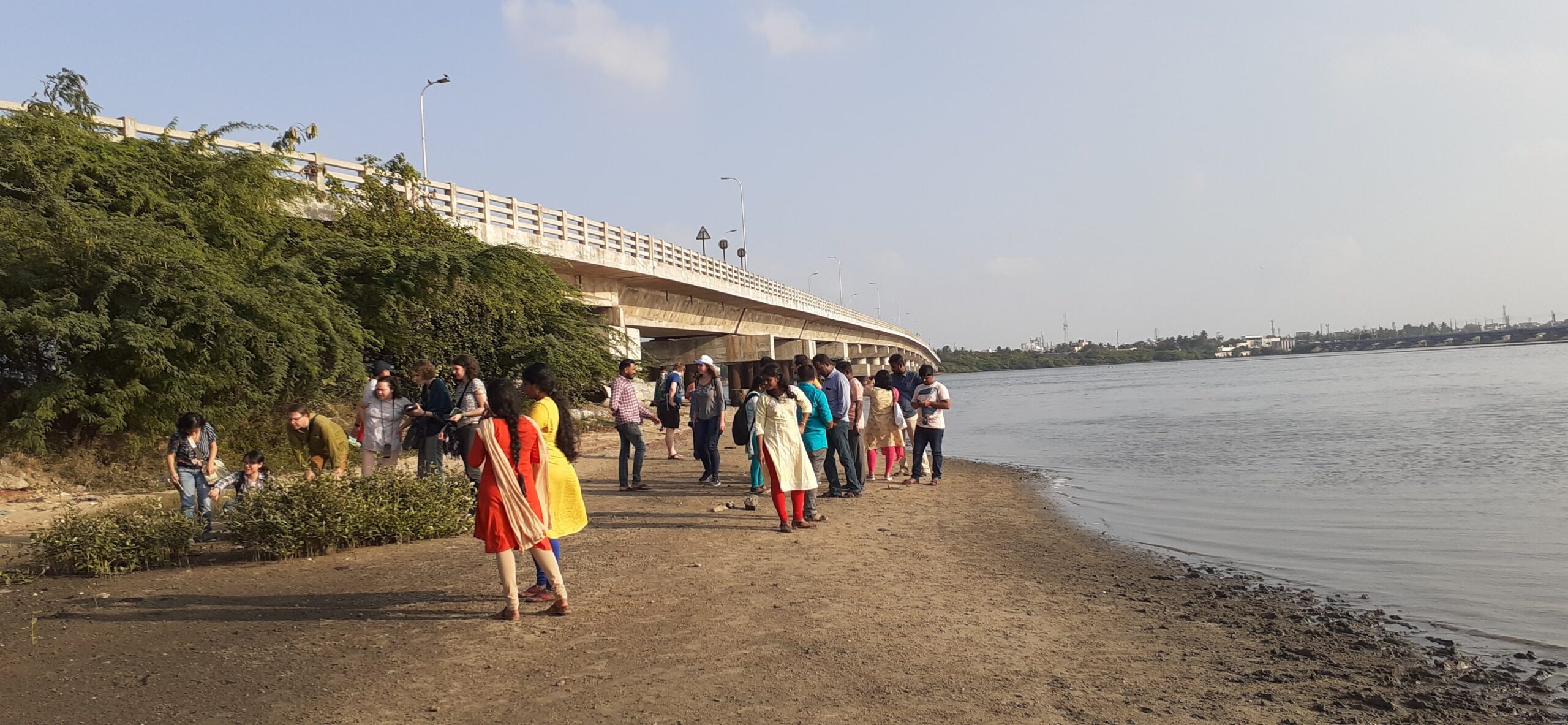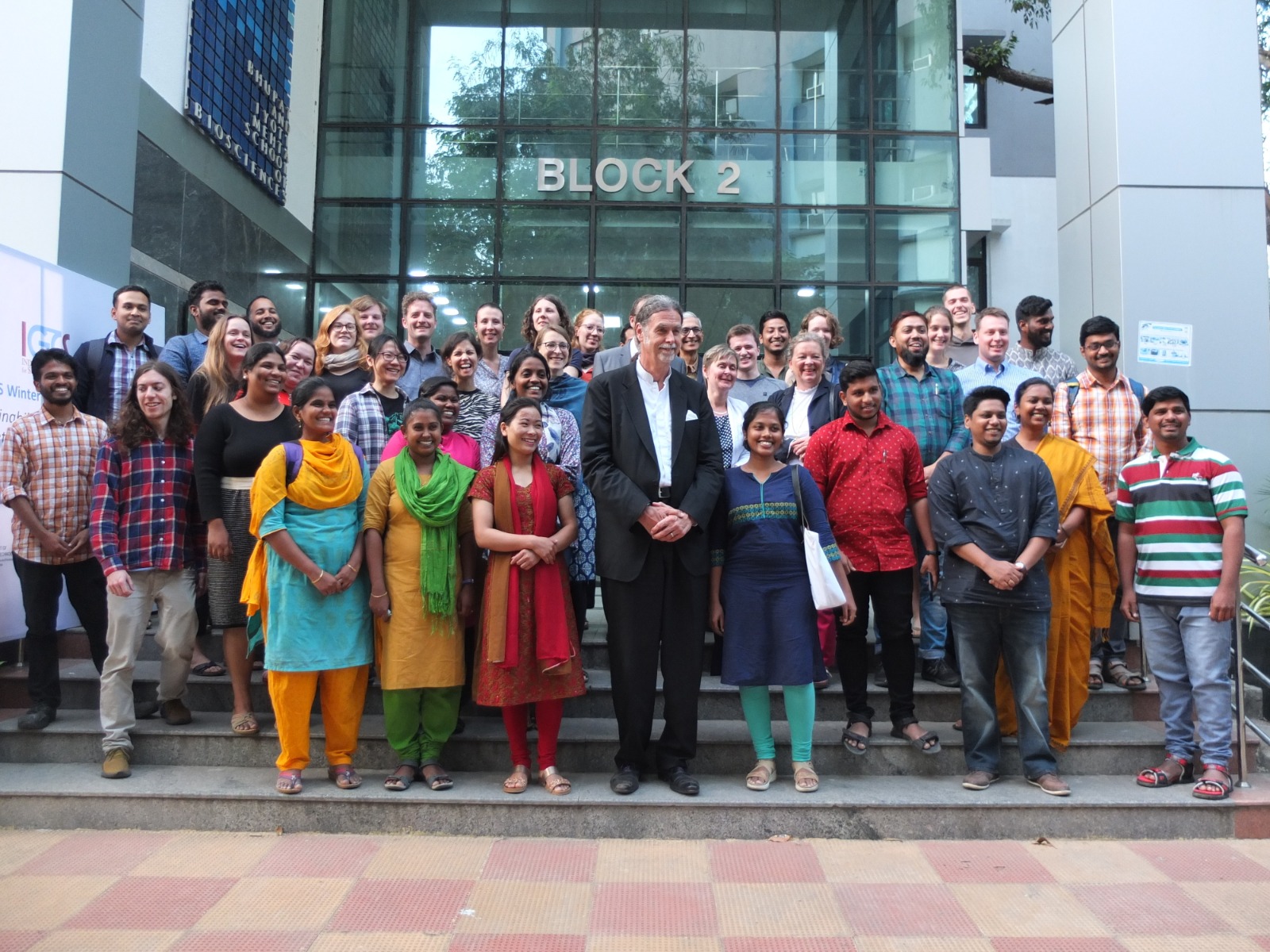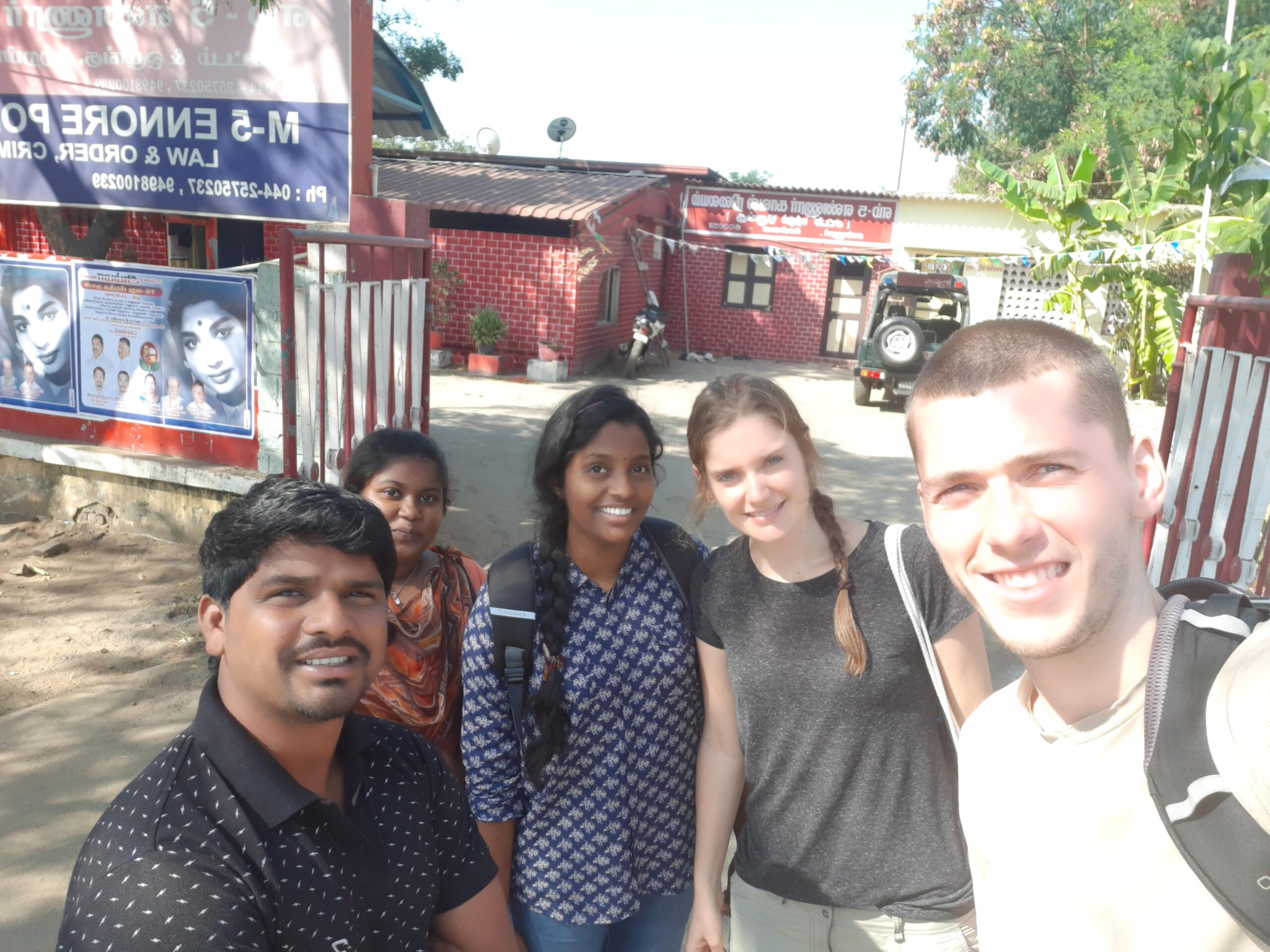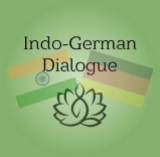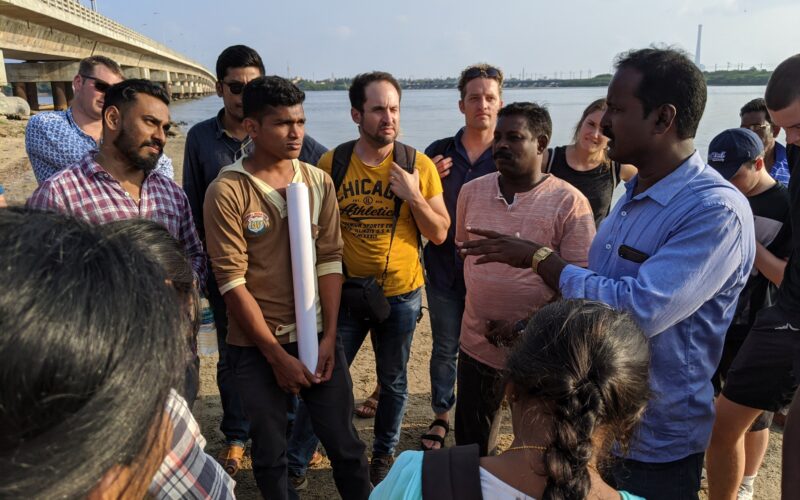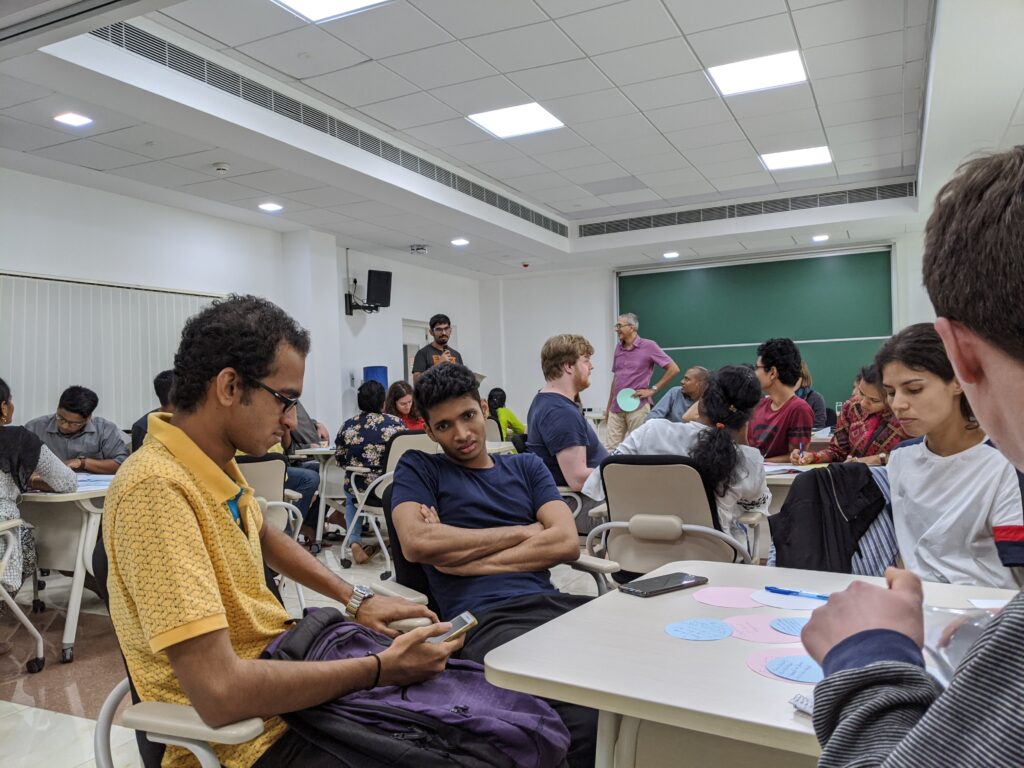An Interview with RWTH Alumnus Prof. Dr. Joybrato Mukherjee, the New President of the German Academic Exchange Service – DAAD
About 45 minutes before the interview was scheduled to begin, I received an email from the DAAD Office in Bonn: “Professor Mukherjee is on his way, but he may be a little late.” This
message was not at all alarming. After all, it was a Friday afternoon with heavy traffic on the freeways between Bonn and Aachen, a little bit of normality, so to speak. But what’s normal in the year 2020, after the coronavirus pandemic has fundamentally changed people’s lives all around the world? In June 2019, Professor Dr. Joybrato Mukherjee, President of Justus Liebig University Giessen (JLU), was elected the new President of the DAAD. Since January 1, 2020, he has been at the helm of the world’s largest funding organization, which offers funding for around 145,000 students and scholars and operates 70 offices abroad.
Born in 1973, the son of Indian immigrants, in the city of Düren in the Rhineland, Joybrato Mukherjee completed his studies in biology and English at RWTH in the 1990s. He then pursued a doctorate and habilitation (post-doctoral lecturing qualification) at the University of Bonn. In 2003, Joybrato Mukherjee was offered the professorship of English Linguistics at JLU and in 2009, he even became president of the institution.
Alongside DAAD President Dr. Margret Wintermantel, the RWTH alumnus had already gained valuable experience as Vice-President of the DAAD since 2012. Now, in his very first year as President, he is facing great challenges with the coronavirus pandemic. The new DAAD President already expressed the special role of international relations in combating the global pandemic in a video message in the spring: “Global problems can only be solved in global networks.” It should also be noted that, in addition to his office at the DAAD, he is
also in charge of leading a university at this difficult time. In an interview with RWTH Alumni Magazine, Professor Joybrato talks about his personal experience in this unique year while also touching on his time spent studying in Aachen.
Professor Mukherjee, how did you personally experience the situation when the whole of Germany went into lockdown in mid-March due to the coronavirus pandemic?
For me, the weekend of February 29 and March 1 was when everything switched. I had recently returned from a delegation trip to Kenya and Sudan with the German President. It was still the old days, so to speak: people saying goodbye with handshakes and hugs. And on the following Monday, back at my university in Giessen, we abolished handshakes in a circular letter. The Hochschulpakt (University Pact) negotiations in Hesse also discussed this issue shortly afterwards: are we even allowed to shake hands now? On Wednesday, March 11, the Hochschulpakt was signed and two days later, the decisions from the round of the German Chancellor with the State Prime Ministers to initiate the first protective measures were announced.
I felt it was a big upheaval at the time. I didn’t expect the new social norms to take hold so quickly. You’ve got to get it straight: We don’t shake hands anymore, we don’t hug anymore. We have new standards of protection, like wearing masks, keeping your distance. We also behave very differently in the supermarket. This has all been adopted insanely fast. But it also shows that our society is quick to learn.
At the DAAD, our immediate focus was on crisis management. How do we take care of all the individuals we are funding around the world? Thousands of scholarship holders, students, and scholars who either came to Germany from abroad and were stranded, or our grantees throughout the world who had to be brought back to Germany – all of them had to be advised individually. Through all this crisis management in the first few weeks, you didn’t really think about the situation at all. It was only during April and May that we could look back in shock at how quickly the world had changed so drastically.
You just implied that the work of the DAAD has changed considerably as a result of the pandemic. What were the particular challenges in change management?
You have to distinguish between two phases at the DAAD: From mid-March, the focus was less on change management and more on crisis management. Thousands of scholars and our member universities asked: What are we going to do? Of course, this was also a challenge for us at the DAAD, since our 1,100 employees could no longer work as usual. Many started working from home, others we had to bring back to Germany from countries all over the world. So we were in a process of upheaval ourselves as an institution and had to look after our grantees and member universities at the same time. But everything that happened from May onwards is what you have already rightly called change management. We can already see that after the pandemic there will be no going back to the way things were in 2019. We have a whole series of questions we need to ask ourselves. After all, this concerns issues that were already on the agenda before. Coronavirus accelerated many discussions. We had already begun to ask ourselves, from an environmental policy perspective: How should mobility actually develop further? How can we organize exchanges without putting people on planes right away? How can we be involved in international networking without always having to travel? Coronavirus is also accelerating the whole question of digitization options. Who would have thought a year ago that we would now be working with so many digital and hybrid formats? And added to these questions – What is the mobility of the future? When do we need mobility? When do we use digital options? Which hybrid formats can we consider? How can we allow people to have intercultural experiences without going against our sustainability standards? The pandemic not only accelerated the discussion, but also provided us with an opportunity. We are now forced to address these issues.
The German and state governments are facing a dilemma in developing strategies to prevent further coronavirus infections. On the one hand, it is important to protect the nation’s health, on the other hand, citizens’ democratic rights and individual freedoms must be upheld too. Do you see a way out of this?
I don’t know if it necessarily has to be perceived as a dilemma. Protecting citizens’ health is, of course, a high priority. I don’t think the government in our country is making such a narrow argument at all either. At the time of the initial lockdown measures, the aim was to ensure that our health care system was not beyond capacity. I am also saying this as President of a university with a medical school and an affiliated university hospital. When conditions in Giessen get out of control, the problems end up in the university hospital. It’s no different here in Aachen. So now, as we move into fall and winter, we need to think carefully: how can we keep the health care system from going beyond capacity? We learned a lot over the summer. But we must not play this off against democracy, against civil liberties. We have to keep thinking this through together, and I think that is also a great strength in our country. We have always weighed up matters carefully, we have been prepared to question situations and to learn. I recall the mask issue. We as scholars can also only say again and again: science also entails having doubts and this leads to insights. And this is just as true for politics. That is why we in Germany came through the crisis well in the summer. According to different studies, this was also perceived abroad. We Germans do not live in an authoritarian state, but rely on a free society in which most people – unfortunately not all, but most – go along with the rules. We will now rely on this willingness for the fall and winter. We need to explain the situation over and over again so that people will cooperate out of their own conviction. That’s our system. In her coronavirus speech held in the spring, the Chancellor already spoke about our system being based on two things – shared knowledge and participation in her coronavirus speech. And that’s something we scholars need to champion as well. Shared knowledge is important – which is why virologist Prof. Christian Drosten also receives awards for excellent scientific communication, and rightly so. And to get through the pandemic, we need the participation of more than 80 million residents of our country.
You mentioned the word “insight”. Many people are denying the dangers of the coronavirus and many are denying the existence of climate change despite all the scientific evidence. As a scholar, aren’t you a little worried about this?
I don’t think we should take action from a worried state of mind. As I was saying: We live in a free society. It is absolutely legitimate to have a different opinion, to have doubts, to criticize things that don’t suit you. At its core, our state thrives on a large majority following rational arguments. There will always be a minority who are fundamentally opposed to this. Then it is necessary to react with certain government measures. In principle, however, our system cannot function exclusively with repression. That is not our way.
Of course, I am saddened to see that many still doubt that climate change exists, that some people still believe that the concept of the Anthropocene is a fantasy, that others still believe that Bill Gates created the coronavirus. You can worry about this indeed, if you like. But that is not, I think, what we should be focusing on. We should look to the majority of society. I am firmly convinced that the vast majority of the population will cooperate. It is important to strengthen this majority and not to narrow the discussion to the statements of a few loud voices.
As an English scholar who is certainly closely connected to the UK not only through language, you must also be looking rather anxiously across the channel in view of Brexit. EU representatives are now also threatening “better no deal than a bad deal”. How do you see this development?
On this matter, I would first like to concentrate on my connection via my profession as DAAD President, which focuses on science policy. Other aspects, of course, come to the fore – trade policy, economic policy, Northern Ireland. For us at the DAAD, it is important not to forget scientific cooperation. That’s my top priority. And there’s one thing you have to keep in mind: Brexit is a loss for us too. We Germans are losing a very important partner country in the EU. British universities are extremely respected and popular. In the figures for the current winter semester, we are now seeing that British universities are not suffering from a slump in international students after Brexit, in fact, it’s quite the opposite. UK universities are among the best performing higher education institutions in the world. And we will lose these high-performing partners if, for example, we fail to keep them in the ERASMUS program. I say this also because the DAAD is the national ERASMUS agency for Germany. For our German students, the UK is the second most popular destination after Spain. This means that Brexit is an issue for us too. That’s why it’s in all our best interest to come to an agreement. And, of course, it would be great if academic relations were taken into account in the process.
As DAAD President, do you have some connection to Brussels and could have an influence on this matter?
Not directly, but the DAAD is in the alliance of the ten most important German educational organizations, which are in constant exchange with the German Government. Together with the Fraunhofer-Gesellschaft, the Max Planck Society, the Leibniz Association, and other organizations, we advise the German Government on science policy issues. The DAAD also has a branch office in Brussels and directly represents our interests there. However, this does not mean that we can say this is the way things have to be done, rather we offer our expertise on certain issues. One example: shortly after the Brexit referendum, the relevant committee in the House of Commons had a hearing on science policy issues in 2017. My predecessor as DAAD President, Professor Wintermantel, was invited to attend. The hearing addressed important questions about scientific exchange outside the UK. And Professor Wintermantel clearly emphasized the importance of ensuring these exchanges could continue. Let’s be clear, though: science policy issues are unfortunately not the linchpin of the negotiations.
When you took office as President of Justus Liebig University Giessen in 2009, you were the youngest university president in Germany. What prompted you to take this step from teaching and research into top university management?
It wasn’t THE big move at the time because I was already first vice-president. Basically, you have to put it into perspective with age as well. I had already been working as a professor in Giessen for a number of years and had also been involved in academic self-administration – in the Dean’s Office, the Senate, and the Presidium. But all this was not part of my plans at all. When I came to Giessen, I had not planned to run for the Senate and then head one of the professor lists there. It just worked out that way. I had no plans to run for president either. My predecessor at JLU, Stefan Hormuth, who sadly passed away far too early, and who, by the way, was also DAAD President at the time, had decided not to run for a third term. None of us expected that. The decision to run for office in Giessen was based on very specific reasons: I am extremely grateful to this university. As you pointed out: I was the youngest university president in Germany, which also had something to do with the fact that I became a professor very young. The Department of English in JLU has been a very high-performing one for many years, perhaps on a par with the University of Freiburg, Ludwig-Maximilians-Universität München, and Freie Universität Berlin – according to the Science Council and evaluations by other organizations. I was offered the position there at the young age of 29. Great trust was placed in me from the beginning, so I have always felt a certain sense of obligation. And when I joined in 2009 I was greatly supported. I was then elected by a large majority in the first ballot. That was the final proof that my decision to run was certainly not wrong.
It is not only universities that engage in alumni work. The DAAD is also strongly connected to its former scholarship holders. In your opinion, what is the value of alumni relations?
Well, to put in plainly: this is the real mission of the DAAD. We award scholarships, we support projects, we advise our member universities, we do many things. But at its core, the DAAD’s mission is to create “friends” of Germany, to have people in the world and people in Germany who have gained intercultural experience, but also to have people in the world who feel connected to Germany because they have been sponsored by the country. Here’s a special story from my trip to Africa with German President Steinmeier just before the coronavirus pandemic. When you are in Kenya and see that several members of Kenyatta’s cabinet and the Deputy President of Kenya are DAAD alumni, you see this same Deputy President approaching you before the state banquet, thanking you in front of everyone because he was sponsored by the DAAD in the early 1990s, and he mentions this again and again in every speech during the three-day state visit, it shows what an impact the DAAD has. These are leaders who feel connected to us. That is our real mission. I could give many other examples. Creating alumni, so to speak. is actually the most important thing we do at the DAAD. This is a network of friends in the world who perhaps approach things with the same cooperative and international spirit as we try to do in Germany.
As an RWTH alumnus, what can you still remember from your student days in Aachen?
Of course, my studies here were a very formative time. I come from Düren, a city nearby, and studied in Aachen together with my wife – we were not married at the time. She studied biology and I pursued a teaching training degree in biology and English. Back then, I got to know Aachen very well because I was constantly commuting back and forth between the central area around Templergraben and the new buildings on Campus Melaten, i.e. English here in the center and biology out at Melaten. In biology, you also conduct your first identification exercises, which involves field trips to the neighboring countries. This gave me a great opportunity to get to know the area. And as I sit here, looking out from SuperC at Kármán Auditorium, many memories come flooding back. I also mentioned this at the DAAD scholarship holders’ meeting that we held here last year. That was a special moment for me in the Aula of the Main Building next door. Because that’s where Orientation Week began in my first semester in mid-October 1992. Coming back after so many years in a completely different capacity, you remember such times fondly. Yes, RWTH gave me a lot. And I thought Aachen was a great city, especially because it was so international. The city, of course, borders two countries. Aachen is an international city and I think it’s no coincidence that I ended up at the DAAD with this background.
That’s a wonderful note for us to finish on. Thank you so much for your time, Professor Mukherjee.
This interview has been published in RWTH Alumni Magazine “keep in touch” No 69/70, Winter Semester 2020/21

